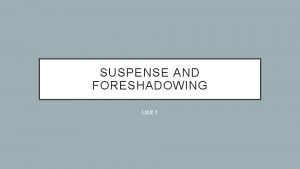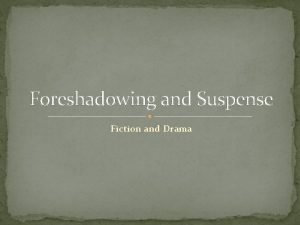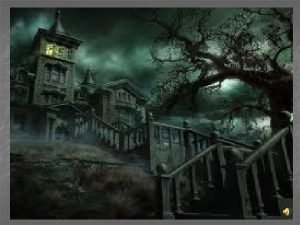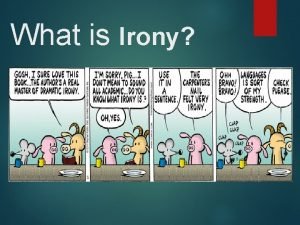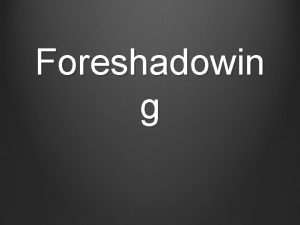Other Key Terms Irony Foreshadowing Suspense Irony Irony







- Slides: 7

Other Key Terms Irony Foreshadowing Suspense

Irony �Irony is the opposite of the intended meaning. �There are three types of irony – 1. verbal 2. situational 3. dramatic �We will use Twilight as an example to learn more about irony.

Verbal Irony �Occurs when the intended meaning of words is different than what they seem to express �An example of verbal irony is when Bella asks Edward how long he has been seventeen. Edward's response of "a while" is ironic; for most people, this would mean a few hours, days, or months, but for Edward, this means hundreds of year. This is an example of verbal irony because the words mean something other than their intended meaning.

Situational Irony �Occurs when the opposite of the expected or intended happens �Edward is drawn to Bella because she is the best smelling human he has ever encountered. Ideally, she would be the best meal ever for Edward. Ironically, Edward falls in love with Bella and becomes her most faithful protector, against all of his natural instincts as a vampire. This is an example of situational irony, when the opposite of the expected or intended happens.

Dramatic Irony �Occurs when the readers/viewers know something that the characters do not. �An example of dramatic irony can be seen in the beginning of Twilight, when the readers know that Edward is a vampire, but Bella and other characters do not. Dramatic irony is when the readers/viewers know something that the character(s) do not.

Foreshadowing �occurs when the reader/viewer receives hints or ideas about what will happen in the future �Alice's premonitions are examples of foreshadowing. When Bella is fleeing from James (another vampire), Alice foresees the dance studio where the final confrontation between James and the Cullens will take place. This premonition gives viewers a hint as to what will happen later.

Suspense �the feeling that occurs as the reader, viewer, or character is uncertain of what will happen next �When James meets Bella after the baseball game, he becomes driven to track and kill her. From this point on, suspense builds as the chase for Bella intensifies. Viewers wonder whether or not she will escape the talented tracker.
